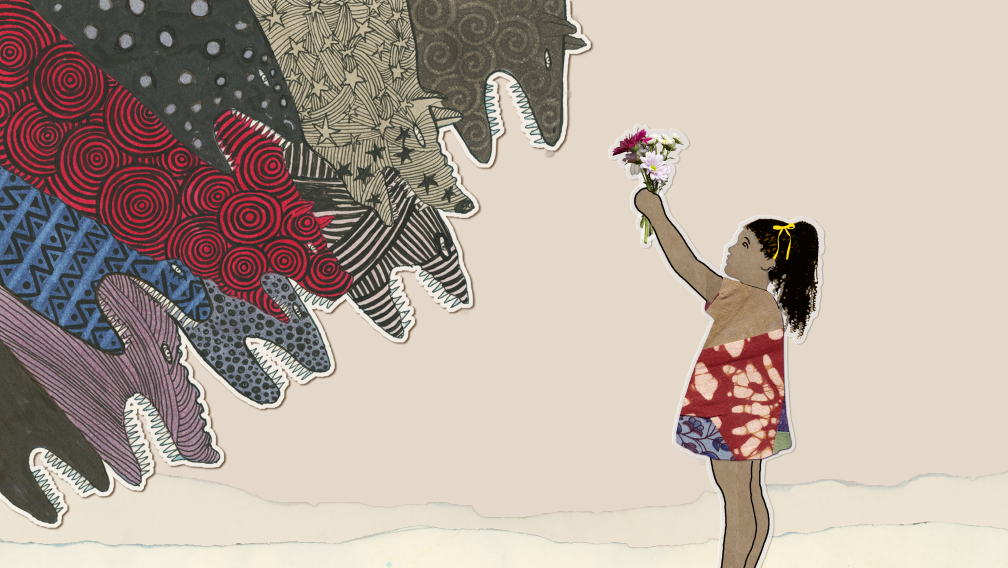Loving Your Enemy Isn’t Giving Up

“Jesus said, ‘I say to you that listen, love your enemies . . . Do not judge, and you will not be judged; do not condemn, and you will not be condemned. Forgive, and you will be forgiven.’” — Luke 6:27, 37
Our Gospel reading this Sunday gets right to the point. “Love your enemies,” Jesus tells us, in one of the most challenging parts of Scripture, and “expect nothing in return.” Such a directive goes against our deeply rooted human instincts.
If someone has hurt us, or if we feel threatened in any way, we often develop armor to protect ourselves from our worst fears. When bad things do happen, we tend to harbor and nurture our resentments. While we may not actively wish harm on those who have harmed us, we understandably bristle at the suggestion that we should love our enemy. It can land on our hearts like salt in a wound, or worse, like an abrogation of justice.
To make matters more discomforting, Jesus connects our tendency to judge others to our lack of forgiveness. “Do not judge,” he says, “and you will not be judged . . . Forgive, and you will be forgiven.” Here, Jesus refocuses the attention back to us, holding up a mirror to our already brittle egos. How, we might ask, can we find a balance between self-protection and self-reflection, between the necessary decrying of evils and an admittance of our own sinfulness?
One way forward is to recognize that all this talk of non-judging and forgiveness should not be mistaken for a call to bury one’s face in the sand or a complacent unwillingness to call out what is wrong in the world. Loving one’s enemy does not mean acquiescence to the powers that be. It does not mean inaction in the face of injustice or a lack of protest. We see this in the witness of Jesus himself, who did not shy away from speaking truth to power, and who spent the bulk of his ministry in actionable empathy — healing the sick, caring for the poor, and including the disinherited.
Loving one’s enemy does not mean acquiescence to the powers that be. It does not mean inaction in the face of injustice or a lack of protest.”
Rather, Jesus is advocating for an acquiescence of self to God — a faith that judgment is ultimately in God’s hands because only God can see into both the sinful and wounded parts of a human soul. Only God knows the true reasons for why someone does what they do, the stories and intricacies, the early hurts and withholdings, that make up the complexity of a life.
All of us have sinned, in other words, against God, neighbor, and ourselves — even if only in the quietness of our own minds. In our judgment of others, we tend to forget our own culpability. We’re unable to see the ways we might be complicit within larger systems that afford us comforts we are unwilling to abandon. We tend to lash out like vipers in anger towards those with whom we have disagreements while ignoring the hidden places where our own anger has poisoned us.
In forgiving others, we give a gift to ourselves. As the Archbishop Desmond Tutu wrote, in a time of political upheaval, “to forgive is indeed the best form of self-interest since anger, resentment, and revenge are corrosive of that summum bonum, that greatest good, communal harmony that enhances the humanity and personhood of all in the community” (No Future Without Forgiveness).
God’s love for us, while we were — each of us — enemies of God is the epitome of God’s grace. It is offered as a gift to remind us that the inherent dignity we hold as image-bearers of God is also reflected in every human life — without exception. This is a radical kind of good news. If we accept it, we can be freed from the prison of retaliation, from the grip of anxiety and fear. In giving judgment back to God, and in the seeds of quiet forgiveness, we see the rebirth of hope and — dare I say it — joy.
Summerlee Staten
Summerlee Staten is the executive director for faith formation and education.
Read all of Sunday’s Scriptures
Step Into the Story
Here are some ways to think more deeply about loving our enemies.
Theology
While Jesus’s call to love our enemies might be remembered as part of his well-known Sermon on the Mount in Matthew’s Gospel, in the version we read in Luke’s Gospel, Jesus begins his teaching by coming down from the mountain to meet the crowds in a “level place.” Luke’s take, argues the Rev. Barkley Thompson, rector of St. Mark’s Episcopal Church in Little Rock, Arkansas, “actually offers a much more radical and uniquely Christian truth.”
Literature
Les Misérables, Victor Hugo’s novel and a well-known musical, features a striking depiction of enemy love. When ex-convict Jean Valjean is caught stealing silverware from the bishop, rather than accuse him, the bishop adds his beloved candlesticks to Jean Valjean’s loot, thus shielding him from the police. The anti-clericalist Hugo actually intended to set a standard that no priest or Christian could ever reach, yet this is exactly the sort of love to which Jesus calls us.
Liturgy
In The Episcopal Church’s Good Friday liturgy, we take inspiration from Jesus forgiving his executioners from the cross and pray for “those who are enemies of the cross of Christ and persecutors of his disciples.” But, knowing that we too often sin against our neighbors, we then immediately go on to pray for “those who in the name of Christ have persecuted others.” It’s an important balance to strike.





